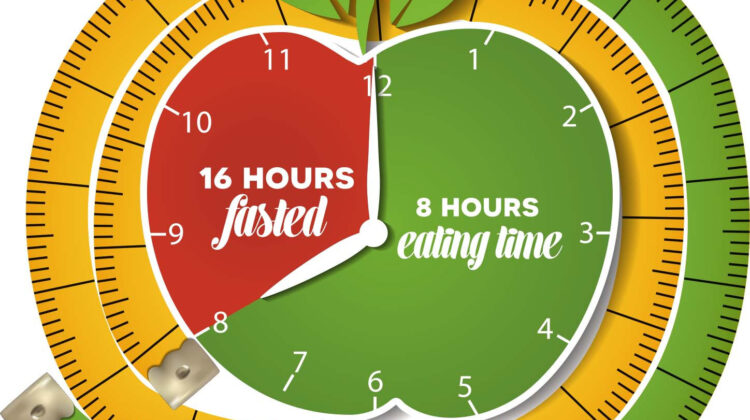
Intermittent fasting has recently gained popularity as a potential strategy for weight management and health improvement.
For marathon runners, the question arises: can intermittent fasting as a nutrition program for runners enhance performance and recovery? This article explores the principles of intermittent fasting, its potential benefits and drawbacks for marathon runners, and practical tips for implementation.
Nutrition is important to ensure a successful race
What is Intermittent Fasting?
Intermittent fasting is an eating pattern that alternates between periods of fasting and eating. Several popular methods exist, including:
- 16/8 Method: Fast for 16 hours and eat during an 8-hour window.
- 5:2 Diet: Eat normally for five days and restrict calorie intake to 500-600 calories on two non-consecutive days.
- Warrior Diet: Eat small amounts of raw fruits and vegetables during the day and one large meal at night.
- Weekly 24-hour fast: This means going without food for an entire day. Many individuals fast from lunch to lunch or from breakfast to breakfast. During the fasting phase of this diet plan, individuals can consume water, tea, and other calorie-free beverages.

Benefits of Intermittent Fasting for Runners
- Improved Fat Oxidation: Intermittent fasting may improve the body’s capacity to use fat as fuel. Glycogen reserves are reduced during fasting, forcing the body to use more fat. Given that fat is a more sustainable energy source for long-distance sports, this may be beneficial for marathon runners. Which will enhance the benefits of Carb loading and ensure a successful race.
- Enhanced Recovery: Fasting has been linked to improved recovery due to its effects on inflammation and cellular repair. The practice may help reduce muscle soreness and accelerate the healing process after long runs or intense training sessions.
- Weight Management: For runners looking to maintain or lose weight, intermittent fasting can provide a structured approach to caloric intake. It can help prevent overeating and promote a healthier relationship with food, which is crucial for optimal performance.
- Focus and Mental Clarity: Many people who do intermittent fasting claim that their ability to focus and think clearly is enhanced when they fast. This elevated mental state can benefit marathon runners by increasing motivation and focus throughout training and competition. Proper nutrition will ensure a faster 5k race for you
Potential Drawbacks of Intermittent Fasting for Runners
- Energy Levels: The possible effect on energy levels of intermittent fasting for marathon runners is one of the primary concerns. Some athletes may feel fatigued or perform worse during the fasting phase, particularly if they are exercising at a high intensity.
- Nutritional Deficiencies: If fasting is not planned carefully and correctly, it might result in dietary deficits. Sufficient amounts of carbs, proteins, vitamins, and minerals are necessary for runners to support their training and recuperation. Ensuring meals are nutrient-dense throughout the eating window is essential.
- Getting used to the Regimen: Making the switch to an intermittent fasting schedule might be difficult. Running enthusiasts might first feel famished, agitated, or perform less well as their bodies adjust to the new feeding schedule.

How to Implement Intermittent Fasting as a Runner?
- Select the Appropriate Method: Choose an intermittent fasting technique that fits both your lifestyle and training regimen. Athletes choose the 16/8 technique because it permits eating before and after training sessions.
- Make a meal plan: When you’re eating, concentrate on consuming foods high in nutrients. Give priority to good fats for general health, protein for muscle repair, and carbs for energy. Include as many fruits, veggies, whole grains, dairy products, and lean meats as possible.
- Drink plenty of water: For runners, especially those who are fasting, hydration is crucial. During lengthy runs or rigorous training sessions, think about consuming electrolyte-rich drinks in addition to drinking lots of water throughout the day.
- Pay Attention to Your Body: Observe your body’s reaction when faced with intermittent fasting. Review your fasting schedule and eating decisions if you experience weariness or observe a decrease in performance. For personalized guidance, speaking with a sports nutritionist might be beneficial.
Conclusion about Intermittent Fasting for runners
Finally, if marathon runners want to help with fat oxidation, recovery, and weight control, intermittent fasting may be an excellent option. But it’s important to go slowly when fasting and to pay attention to your body’s demands.
Running might perhaps benefit from intermittent fasting while maintaining peak performance by selecting the appropriate fasting technique, meal planning with caution, and hydration. Check our our Ultramarathon training guide.
Individual experiences might differ with any nutritional modification, so it’s important to discover a plan that suits you the best. and find the best Ultramarathon nutrition guide for you.
You can also find the Best Ultramarathon Nutrition Guide and The Most Important Information to Ensure a Successful Race, ensuring you are well-prepared for your endurance journey!
Some studies showed that the fasting aspect depleats the runners energy. Other say that the fasting training is good to burn the fats in the body. you have to do your own study and consult a doctor before you decide on taking intermittent fasting as a nutrition plan.
Yes, but it depends.
Intensity matters: Low-intensity runs are generally tolerated better during a fasting period. High-intensity workouts may be more challenging due to limited fuel availability.
Type of IF: Some methods (like 16/8) allow for easier meal timing around workouts compared to more restrictive approaches.
Limited evidence suggests a performance benefit. May improve fat adaptation: IF can encourage the body to utilize fat as fuel more efficiently, which could be beneficial for endurance events.
Individual variation: Responses to IF vary greatly. Some runners may experience improved performance, while others may see no change or even a decline.
Increased risk of low blood sugar (hypoglycemia): Especially during intense workouts.
Reduced muscle protein synthesis: Prolonged fasting can negatively impact muscle recovery.
Potential for nutrient deficiencies: If not carefully planned, IF can lead to inadequate intake of essential vitamins and minerals.
Increased risk of overeating: Some individuals may overcompensate during their eating window, negating any potential benefits.
Prioritize nutrient-dense foods: Focus on whole foods like lean protein, healthy fats, and complex carbohydrates during your eating window.
Hydration is key: Drink plenty of water throughout the day, especially during and after workouts.
Consider electrolyte replacement: Replenish electrolytes lost through sweat, especially during prolonged or intense runs.
No, it’s not for everyone.
Consult a professional: Discuss your individual needs and goals with a sports nutritionist or registered dietitian.
Prioritize overall health: IF should not compromise your overall health or well-being.
Disclaimer: This information is for general knowledge and informational purposes only and does not constitute medical advice. Consult with a healthcare professional or qualified nutritionist before making any significant dietary changes.
Key takeaway: Intermittent Fasting can be a viable option for some runners, but it’s crucial to approach it cautiously and prioritize individual needs and preferences.

Leave a Reply